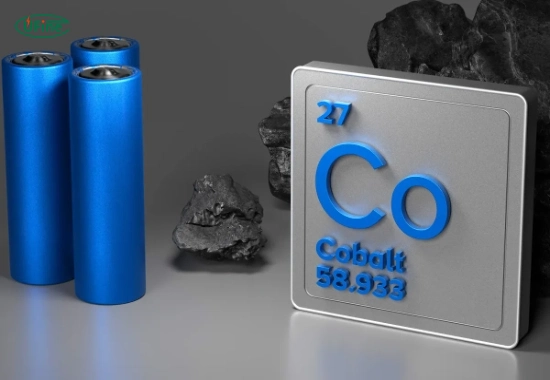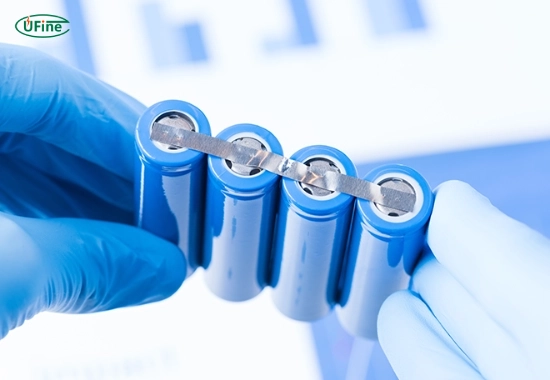The demand for efficient and reliable energy storage solutions has skyrocketed in the age of renewable energy and electric vehicles. At the heart of this revolution lies cobalt, a critical component in the production of batteries. But why is cobalt so essential, and what does it play in energy storage technologies? This article will delve into the critical role of cobalt in batteries, its benefits, challenges, and the future of this essential metal in the energy sector.
Part 1. What is cobalt, and why is it important?
Cobalt is a silvery-blue metal primarily extracted from nickel and copper mining. People value its unique properties, such as high thermal stability, magnetic qualities, and ability to enhance chemical reactions. These characteristics make cobalt indispensable in various industries, especially in producing lithium-ion batteries.
Lithium-ion batteries, which power everything from smartphones to electric vehicles (EVs), rely heavily on cobalt to enhance energy density, safety, and longevity. Without cobalt, achieving the energy efficiency we rely on today would be significantly more challenging.
Part 2. How does cobalt work in batteries?
Cobalt plays a crucial role in cathodes, among the most important components of a lithium-ion battery. The cathode stores and releases lithium ions during the charge and discharge cycles.
Cobalt stabilizes the cathode structure, allowing it to quickly handle repeated cycles without degrading. This stability improves the battery’s overall efficiency, increases lifespan, and reduces the risk of overheating or thermal runaway. In simple terms, cobalt ensures that batteries are safer, last longer, and perform better.
Part 3. Why is cobalt used in lithium-ion batteries?
Manufacturers use cobalt in lithium-ion batteries because of its ability to:
- Increase energy density: Batteries with cobalt can store more energy, making devices lighter and more efficient.
- Enhance stability: Cobalt minimizes battery degradation, ensuring a longer lifespan.
- Boost safety: Its thermal stability reduces the risk of overheating or fires.
- Improve charging performance: Cobalt-based batteries can charge faster, making them ideal for portable devices and EVs.
These benefits make cobalt an irreplaceable component of current battery technology.
How Cobalt Free Batteries Are Transforming the Electric Vehicle Market?
Part 4. What industries rely on cobalt-based batteries?
Cobalt-based batteries are fundamental to several fast-growing industries. Here are some key sectors that depend on this technology:
- Electric vehicles (EVs): EVs rely on lithium-ion batteries for their high energy density and long range. Cobalt ensures these batteries are efficient and durable.
- Consumer electronics: Smartphones, laptops, and tablets use cobalt-based batteries to provide lightweight and long-lasting power.
- Renewable energy storage: Grid-scale storage systems are critical for balancing renewable energy sources like solar and wind, and they use cobalt to ensure reliability and efficiency.
- Medical devices: Pacemakers and other critical medical equipment depend on cobalt batteries for consistent and safe power.
Part 5. What are the challenges of using cobalt in batteries?
While cobalt is indispensable for modern batteries, its usage comes with several challenges:
- Ethical concerns: Miners in the Democratic Republic of Congo (DRC) extract a significant portion of cobalt, often under questionable labor practices and environmental regulations. This raises ethical concerns about its sourcing.
- Supply chain risks: The concentration of cobalt mining in a few regions makes the supply chain vulnerable to disruptions.
- High cost: Cobalt is expensive, contributing to the overall cost of batteries.
- Environmental impact: Mining cobalt can lead to significant ecological damage, including deforestation, soil degradation, and water pollution.
Part 6. How is the industry addressing cobalt challenges?
The industry is taking several steps to address the challenges associated with cobalt:
- Developing cobalt-free batteries: Researchers are working on alternative chemistries, such as lithium iron phosphate (LFP) and solid-state batteries, that reduce or eliminate cobalt usage.
- Ethical sourcing initiatives: Companies increasingly adopt transparent supply chain practices and support ethical mining efforts.
- Recycling cobalt: Recovering cobalt from used batteries is becoming more widespread, reducing the demand for new mining.
- Diversifying supply: Efforts are underway to explore cobalt deposits in other regions to reduce dependence on the DRC.
These initiatives aim to create a more sustainable and ethical future for battery production.
Part 7. Future trends: Will cobalt remain essential?
The future of cobalt in batteries is uncertain but promising. While efforts to reduce cobalt usage are gaining traction, its unique properties make it challenging to replace entirely in the near term. Advancements in battery technology may eventually lead to cobalt-free solutions, but for now, cobalt remains a cornerstone of energy storage.
Additionally, as recycling technologies improve, the reliance on freshly mined cobalt may decrease, ensuring a more sustainable supply chain. The demand for energy storage will only grow, and cobalt’s role in meeting that demand will likely evolve.
Part 8. What are the alternatives to cobalt in batteries?
Researchers are exploring several alternatives to cobalt, including:
- Nickel-rich cathodes: These use more nickel and less cobalt, reducing dependency while maintaining performance.
- Lithium iron phosphate (LFP) batteries: These batteries eliminate cobalt but have lower energy density, making them less suitable for some applications.
- Solid-state batteries: A promising technology that could replace liquid electrolytes and reduce or eliminate the need for cobalt.
- Manganese-based batteries: Manganese is a cheaper and more abundant alternative, though it lacks cobalt’s energy density.
While promising, these alternatives still face challenges, and researchers are thoroughly preparing them to replace cobalt in all applications.
Part 9. How does cobalt impact the electric vehicle market?
The electric vehicle (EV) market is one of the largest consumers of cobalt. EV batteries require high energy density, long lifespan, and safety, all of which cobalt provides. However, cobalt’s cost and ethical concerns have pushed automakers to invest heavily in research to reduce its usage.
Companies like Tesla, BMW, and Volkswagen are actively developing low-cobalt or cobalt-free batteries to make EVs more affordable and sustainable. Despite these efforts, cobalt will likely remain a critical component in the EV market for several years.
Part 10. FAQs
-
Why is cobalt critical for batteries?
Cobalt is critical in lithium-ion batteries because it stabilizes the cathode, increases energy density, and ensures safety and longevity. -
Can batteries be made without cobalt?
Alternatives like lithium iron phosphate (LFP) batteries exist, but they often have lower energy density and other trade-offs than cobalt-based batteries. -
Where does most cobalt come from?
Around 70% of the world’s cobalt is mined in the Democratic Republic of Congo (DRC), raising concerns about ethical sourcing and supply chain stability. -
Is cobalt recycling possible?
Yes, recycling facilities recover cobalt from used batteries, helping to reduce mining demand and environmental impact. -
What is the future of cobalt in energy storage?
While efforts are underway to reduce cobalt usage, its unique properties make it likely to remain significant in energy storage for the foreseeable future.
Related Tags:
More Articles

How to Choose the Best Floor Scrubber Battery for Commercial Cleaning?
Selecting the ideal floor scrubber battery ensures a long runtime, rapid charging, and minimal maintenance for efficient commercial cleaning operations.
Battery for Blower vs Battery for Leaf Vacuum: Which One Should You Choose?
Battery for blower vs leaf vacuum—learn the key differences in power, fit, and runtime to choose the right battery for your outdoor tool needs.
How to Choose the Right Battery for Blower?
Choosing the right blower battery? Consider voltage, capacity, chemistry & usage. This guide helps match the best battery for peak performance.
How to Choose the Best Insulated Battery Box for Lithium Batteries?
Choosing the Best Insulated Battery Box for Lithium Batteries? Discover key factors such as size, material, and safety for optimal protection and performance.
7 Critical Elements on a Lithium Battery Shipping Label
What must be on a lithium battery shipping label? Learn 7 key elements to ensure safety, legal compliance, and correct handling across all transport modes.





